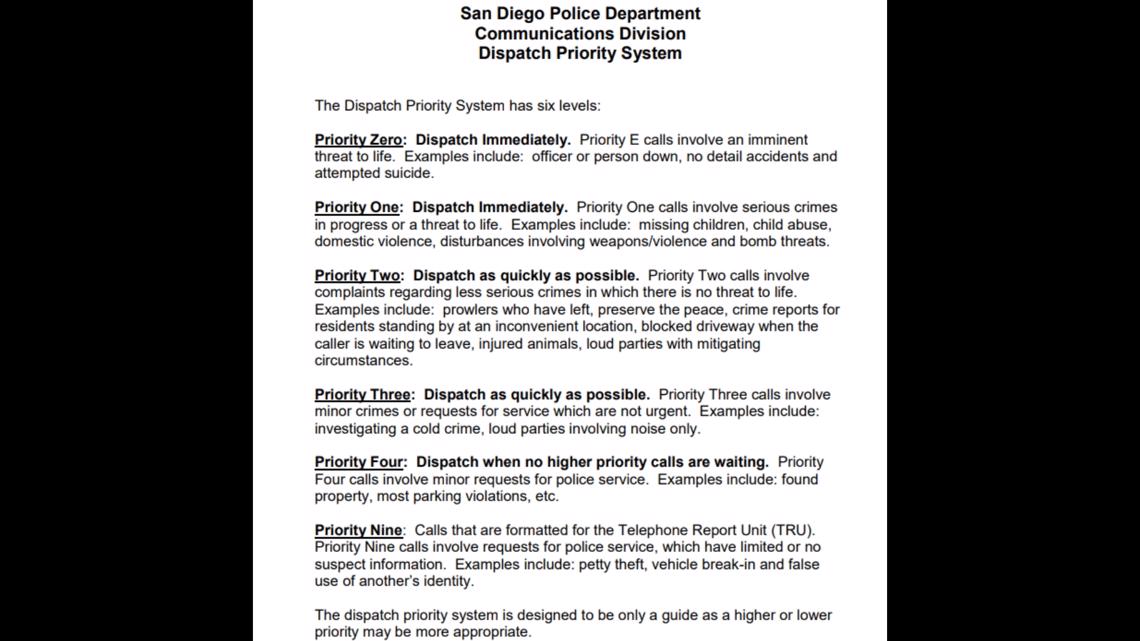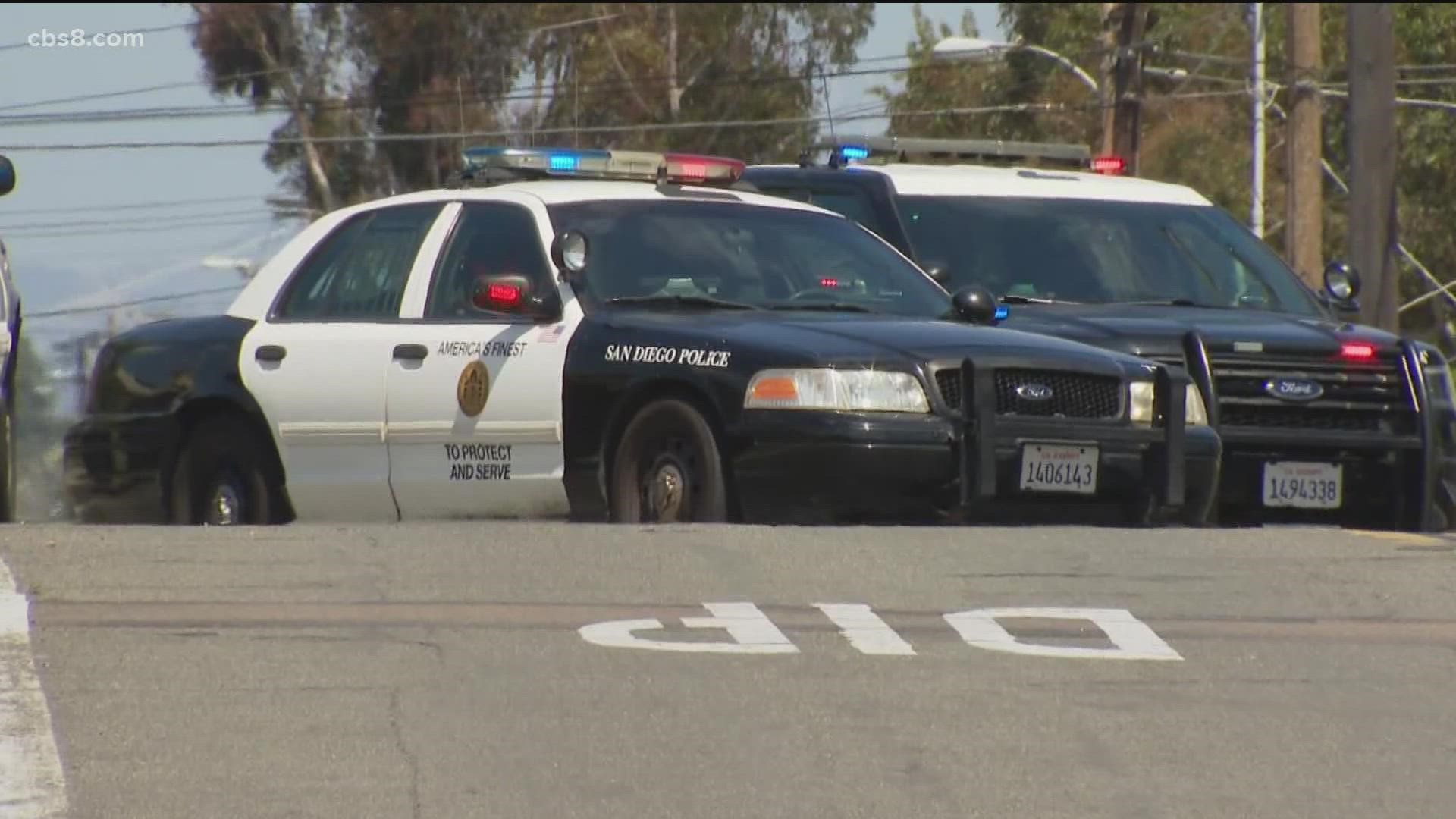SAN DIEGO — San Diego Police Department is short nearly 200 officers. The number of officers currently on the force is currently at levels not seen since 1988.
The staffing shortages have resulted in a massive increase in the time it takes for officers to arrive on the scene of a crime in San Diego, with some call types more than doubling since 2018.
Response Times According to Priority Calls
Police calls to dispatch are categorized by priority. The lower the priority, the higher the emergency with Priority Zero being those where an officer or person has been harmed and where there is "an imminent threat to life."
The next classification of 911 calls are Priority One calls, those where serious crimes are in progress or where there is a threat to life.


Public records obtained by CBS 8 show that since 2018, police response times for the vast majority of calls have increased.
The data shows that response times for the highest priority calls, those classified as Priority Zero, have dropped slightly since 2018, from an average wait time of 6.7 minutes in 2018 to an average wait time of 6.5 minutes last year.
Priority Zero calls, however, were the outlier, with every other priority seeing an annual increase from 2021 to 2022, some more than doubling in just four years time.
According to the data, police response times for Priority One calls, those involving serious crimes in progress or where lives are in danger, increased by 15.4 minutes from 2018 compared to 2022. In fact, San Diego Police were more than three minutes slower to respond to Priority One calls in 2022 than officers were the year before in 2021.
For Priority Two calls, less serious crimes, or disturbance calls, residents had to wait 62 more minutes in 2022 than they did in 2018. On average, residents had to wait just under 119 minutes for those calls.
Response times for Priority Three calls, those involving minor crimes, for 2022 had the longest wait times last year at 189.5 minute-average wait time, up dramatically from 2018 when the average response time was 94 minutes.
Meanwhile, Priority Four calls, which include parking violations and other minor infractions, saw an annual increase from 2021 to 2022 but an overall drop in the five years' worth of data.
San Diego Police Lieutenant Adam Sharki tells CBS 8 that the department "empathizes and shares the community’s concerns and frustrations with response times. SDPD is committed to providing the highest quality of professional police services and will continue working to improve our service delivery."
Lt. Sharki also said that looking at response times by priority is nuanced in that priorities can change depending on the information after the call is received.
Yet, regardless of priority, cutting down on the time that it takes for officers to arrive at the scene will prove a difficult task as the department struggles to hire and retain staff.
Lt. Sharki says that the department is approximately 200 officers short of what it needs and San Diego Police Department " is one of the lowest-staffed large city police departments per capita (https://www.wweek.com/news/2022/09/28/portland-ranks-48th-among-50-big-cities-for-cops-per-capita/)."
In response to the staffing shortages, SDPD has resorted to drastic measures, according to Lt. Sharki.
"Officers assigned to specialized functions like Motorcycles and SWAT have been re-assigned to answering radio calls," said the Lieutenant. "Certain types of calls for service, such as identity theft and hit-and-run reports where there is no suspect information, have been converted to online reporting. The Department is also seeking additional professional staff, like non-sworn Police Investigative Service Officers, to free up sworn officers to handle emergency calls. During COVID, SDPD’s 500 volunteers could not come and serve the City by donating their time. As we continue to move forward, it’s taking time to get our volunteer team back into the service. The Department is still meeting times for Priority E calls and is working to improve response times to other calls."
But, says Lt. Sharki, there is more.
The lieutenant says that calls are more time-consuming than ever and that a new focus on mental health and de-escalation tactics has resulted in numerous calls taking longer than they had in the past.
"Officers transferring custody of someone to jail or a mental health facility often encounter long processing times. The amount of paperwork and state-mandated reporting adds additional work to an officer’s day. A strong focus on de-escalation means more officers and resources are required at crisis calls. Officers are collectively spending more time working through these problems. Overall, out-of-service time (time where officers are assigned to a call for service, arrest, etc.) is through the roof and the amount of time they are free and available is down," says Lt. Sharki.
WATCH RELATED: San Diego Police, Fire Department to surpass overtime budgets by millions of dollars:

